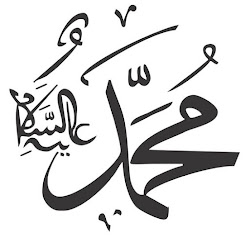Pakistan's politics
Pakistani politics refers to the system and activities related to governance and decision-making in Pakistan. The political landscape in Pakistan has been characterized by a dynamic and complex mix of political parties, military influence, and regional dynamics. Here are some key aspects of Pakistani politics:
- Parliamentary System: Pakistan follows a parliamentary system of government, where the President is the head of state and the Prime Minister is the head of government. The National Assembly and the Senate are the two main legislative bodies in the country.
- Political Parties: Pakistan has a multi-party system, with several political parties competing for power. The major political parties include the Pakistan Tehreek-e-Insaf (PTI), Pakistan Muslim League-Nawaz (PML-N), Pakistan Peoples Party (PPP), Muttahida Qaumi Movement (MQM), and Awami National Party (ANP), among others.
- Military Influence: The military has played a significant role in Pakistani politics throughout the country's history. There have been periods of direct military rule, and even during civilian governments, the military has exerted influence on national security and foreign policy matters.
- Regional Dynamics: Pakistan has diverse regional dynamics, with provinces like Punjab, Sindh, Khyber Pakhtunkhwa, and Balochistan having their own political dynamics and parties representing regional interests.
- Challenges: Pakistani politics faces various challenges, including corruption, political polarization, weak governance, and socioeconomic issues. The country has also experienced political instability and frequent changes in government.
- Election Process: Elections in Pakistan are held periodically to elect members of the National Assembly, provincial assemblies, and local government bodies. The Election Commission of Pakistan oversees the electoral process.
- Foreign Policy: Pakistan's foreign policy is influenced by its strategic location, relations with neighboring countries like India and Afghanistan, and global geopolitical developments. Key areas of focus include relations with the United States, China, and the Muslim world
- rtainly! CeHere are some additional details regarding Pakistani politics:
- Pakistan Tehreek-e-Insaf (PTI): PTI is a political party founded by Imran Khan in 1996. It gained significant popularity and emerged as a major political force in the 2018 general elections, forming the federal government with Imran Khan as the Prime Minister. PTI has focused on anti-corruption, social justice, and economic reforms.
- Pakistan Muslim League-Nawaz (PML-N): PML-N is a center-right political party led by the Sharif family. It has been a dominant force in Pakistani politics, with Nawaz Sharif serving as Prime Minister on multiple occasions. PML-N emphasizes economic development and infrastructure projects.
- Pakistan Peoples Party (PPP): PPP is a center-left political party founded by Zulfikar Ali Bhutto. It has a strong support base in Sindh province. The party has held both federal and provincial government positions and focuses on social democracy, human rights, and welfare programs.
- Muttahida Qaumi Movement (MQM): MQM is a party representing the Urdu-speaking population, particularly in urban areas of Sindh, especially Karachi. It has faced controversies and factionalism over the years but remains a significant political entity.
- Balochistan National Party (BNP): BNP represents the political interests of Balochistan province. It advocates for greater provincial autonomy, development, and rights for the Baloch people.
- Federally Administered Tribal Areas (FATA): Until 2018, FATA was a separate administrative region governed directly by the President of Pakistan. However, the region has now been merged with Khyber Pakhtunkhwa province following constitutional reforms.
- Kashmir Issue: The longstanding dispute over the region of Kashmir remains a key aspect of Pakistani politics. Pakistan asserts its support for the self-determination of Kashmiris and calls for the resolution of the issue according to United Nations resolutions.
- Women's Representation: Pakistan has taken steps to improve women's representation in politics. The Election Act of 2017 introduced quotas for women in the national and provincial assemblies, aiming to enhance female participation in decision-making.
- Censorship and Freedom of Speech: Freedom of speech and press freedom have been contentious issues in Pakistani politics. The country has faced criticism for media censorship, restrictions on journalists, and limited space for dissenting voices.
- It's worth noting that political developments in Pakistan continue to unfold, and there may have been changes or new developments since my knowledge cutoff in September 2021.



Comments
Post a Comment